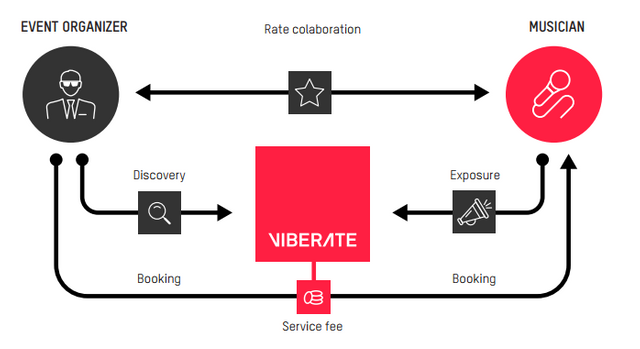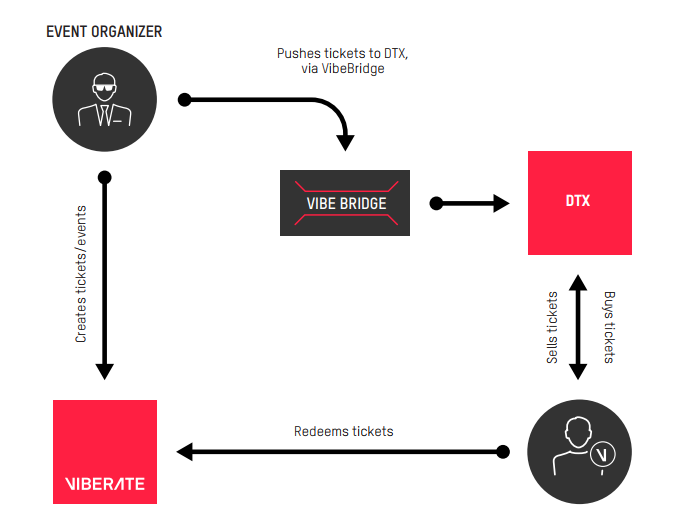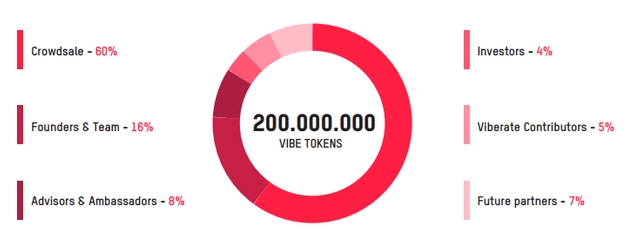Viberate.io ICO - The Replacement for Ticketmaster
There’s hardly anything we hear more than music for pleasure and relaxation, nor is there much else that can be repetitive, with the same songs playing on radio all the time until you can barely handle it any longer. That may be because the music business is very centralized, at least according to Viberate, a new start-up that is seemingly doing something quite innovative.
“A high level of centralization generates profits only for a small group of people, while the majority of others, involved in the live music industry, are left struggling. Small, independent music enterprises such as underground clubs, labels and local event organizers are bullied out of the business by big, often even corrupt, corporations on a daily basis,” they charge in a prospectus of sorts.
Their solution was to create a public, crowd-sourced, database of musicians and event organizers, linking them directly, with Viberate acting not much different than an administrator of the process.
They claim to already have a database of “120,000 musicians, 40,000 music venues and 60,000 events,” backed by $1 million from angel investors.
But those funds have seemingly run their course, so they are now going for a second round with the aim of raising a maximum of $12 million worth of ethereum.
If they succeed, they plan to do many things with the funds. First of all, they plan to give 5% to crowd-sourcing individuals who update their database.
Then, they plan to use smart contracts during the negotiation process between event producers and musicians with the smart contract holding such details as the date and time of the performance, its duration, the musician’s fee, etc.
“Once agreed, the terms will be written into the smart contract, which will then be sealed with a timestamp and put onto the blockchain. Any additions or alterations will result in voiding the old contract and replacing it with a new one, provided both parties confirm the alteration on the blockchain,” they say.
Payments are also to be made through the blockchain in eth or in their own new token Vibes (VIB). Which brings us to the only criticism as it may limit its adoption if those are the only options offered because the number of music goers is likely much higher than the number of eth holders.
That’s especially relevant regarding their second aspect, ticket selling, which they are to offer through a new dapp. The start-up says:
“Tickets will be sold only when both musician and venue owner confirm the event. With that, the sales will start and the tickets will be ported to the Ethereum network via VibeBridge. From that point, any user from anywhere in the world will be able to buy the tickets with Ether or Vibe and hold them in their Ethereum wallet.”
Their business model appears sound, although they provide no current revenue and profits data. Much of the above services will have fees, through taking a cut from ticket sales or when matching-up artists with event organizers, as well as through charging for prominent listings and promotions.
Some of those profits will be shared with crowdsourcing contributors as well as with token holders through “unscheduled buybacks of tokens from various exchanges.”
The start-up boasts of being “recognized by the European Commission’s Music Moves Europe initiative as one of eight European startups that will disrupt the global music industry,” as well as having:
“The full support of the Ministry of Economic Development and Technology of the Republic of Slovenia, with a signed endorsement letter by the Minister, Zdravko Pocivalsek.”
So much of it is interesting, with the aimed amount being quite reasonable for a second round, especially considering they already have an up and running business.
But ethereum is very volatile to be used as the sole currency for a mainstream market, while VIB would probably be even more limiting, so they may want to use both as optional, alongside more established currencies, such as dollars and pounds.


